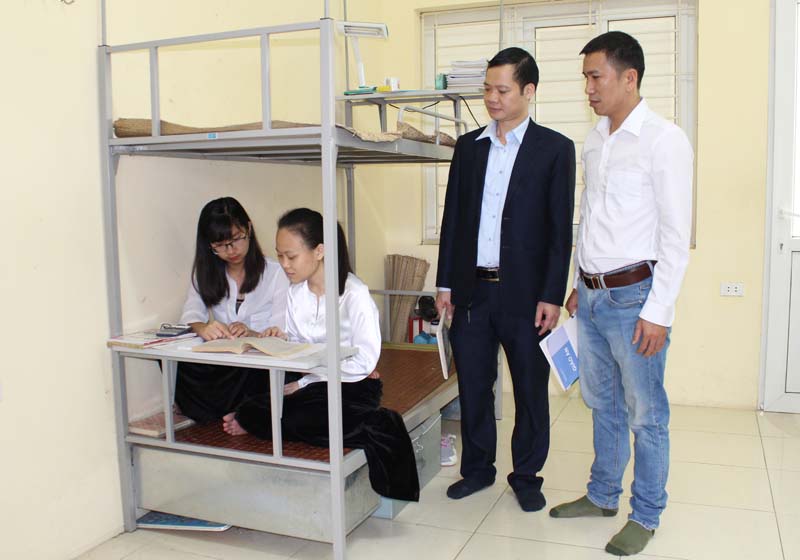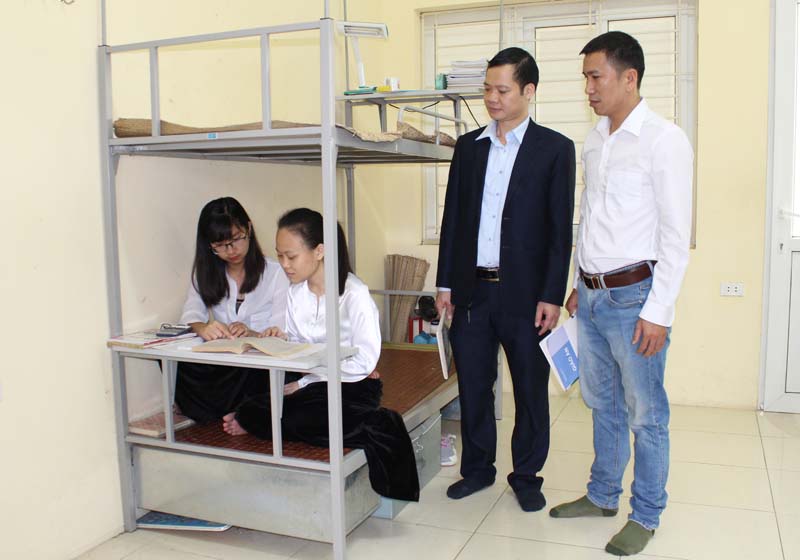
(HBO) – The high school entrance examination for the 2018-2019 academic year in Hoa Binh province will be divided into two phases. The first phase will be dedicated to the Hoang Van Thu High School for the Gifted from June 4-6, while the second phase will be held for the remaining schools from June 14-16.
As the leading quality high school in the province, the
examination in Hoang Van Thu has drawn attention of many parents and students.

The
dormitory of the Hoang Van Thu High School for the Gifted was built spaciously
to provide accommodations for students from districts.
In the 2018-2019 academic year, the Hoang Van Thu School plans to
enroll 500 10th-grade students, including 12 classes for gifted
students and four normal classes. Notably, this year, the school will have two
classes for ethnic minority students, including one natural science class and
one social science class.
Ethnic minorities residing in Hoa Binh and graduating from
secondary schools in the province with learning capacity of average and above
and good behaviour are subject to this enrolment.
To provide accommodations for students, especially those from
ethnic groups, the school inaugurated a modern and spacious dormitory with 32
rooms equipped with a toilet each and furniture for six to eight students per
room. The dormitory can serve around 200 students from districts around the
province. At present, nearly 150 students, including many ethnic minorities,
are living at the dormitory.
Based on the provincial People’s Committee’s plan, relevant
departments and sectors are drafting a financial mechanism for students of the
two classes to be submitted to the provincial People’s Council for approval. If
the mechanism is passed, students will enjoy policies as those of boarding
schools for ethnic students in the province, including tuition exemption,
scholarships, and assistance related to travel costs, learning tools, and
health insurance./.
The emulation movement "Hoa Binh joining hands to build new-style rural areas” has been widely spreading, becoming a driving force that motivates the localities to renew rural landscapes and improve the material and spiritual lives of the residents. In this movement, the people play a central role-both as the main implementers and direct beneficiaries of its outcomes.
In response to the global digital revolution, Hoa Binh Newspaper is transforming itself into a modern and multi-platform media hub, blending cutting-edge technology with a restructured newsroom and a new generation of tech-savvy journalists.
Hoa Binh province’s Association of the Elderly recently held a conference to review the project on expanding the inter-generation self-help club model until 2025.
In a move to implement Resolution No. 57-NQ/TW, issued on December 22, 2024 by the Politburo, which targets breakthroughs in science-technology development, innovation, and digital transformation, the Hoa Binh provincial Department of Health has issued a plan to roll out the "Digital Literacy for All” campaign within the local health sector.
An Nghia Commune (Lạc Sơn District) is one of the communes that achieved the tha standard of the national new rural area in 2018. Entering a new development phase, the commune is now trying to meet the criteria for the advanced new rural development. With the strong political will and the public consensus, the commune is gradually overcoming the challenges to reach this goal, aiming for the sustainable development.



